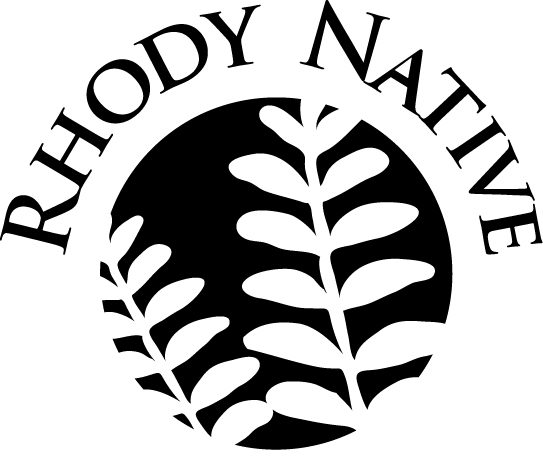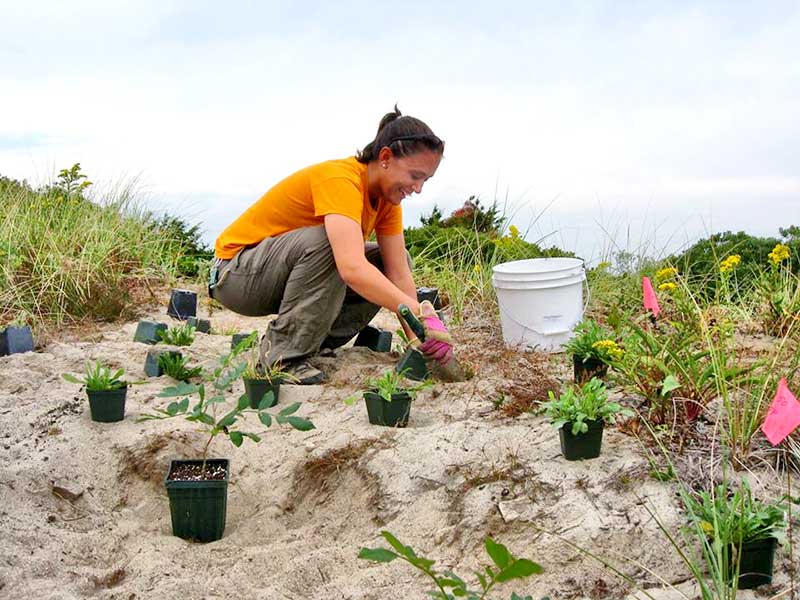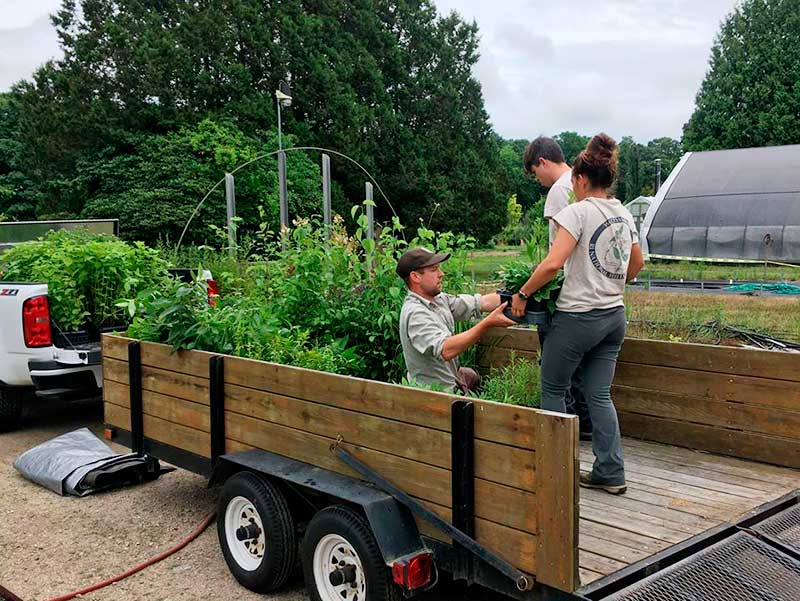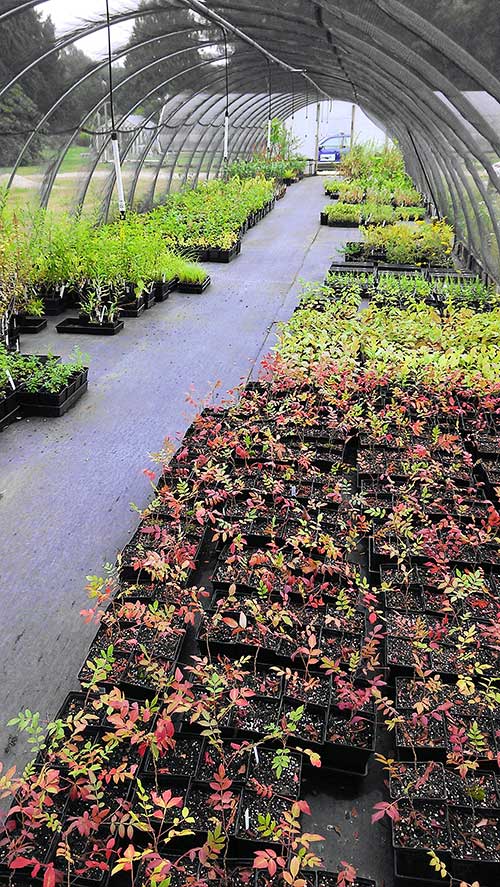
The Rhody NativeTM initiative preserves the biodiversity of Rhode Island’s native plant communities and wildlife, including pollinators, by facilitating access to genetically native plants for use primarily in constructed habitats and habitat restorations. Staff and volunteers propagate a wide range of plants from local, sustainably harvested wild seeds, and sometimes cuttings, and work with partner organizations to place them in restoration sites around the state.

Rhody NativeTM began in January 2010 as part of the Forest Health Works Project, funded by a competitive grant from the U.S. Forest Service as part of the American Recovery and Reinvestment Act (ARRA) intended to lift the country out of “the Great Recession.”
With the main thrust of the FHWP being the removal of invasive plants, the question arose, “Is suitable plant material available to put into the space left by invasive removal?” After review of the nursery supply chain the answer was, “No.” As the funding was intended to benefit both Rhode Island’s economy and the ecology of our forested habitats, the Rhody Native™ focus was oriented toward the state’s horticulture industry; focusing on the production of native plants as an opportunity for diversifying local businesses. Rhody Native™ aimed to re-direct native plant purchases that were primarily occurring out-of-state, toward in-state growers. Recognizing that restoration alone would not be sufficient to support native plant propagation within the state, Rhody Native™ also focused on the use of native plants in landscape design. The native plants we select for propagation are those species which are fundamental to a broad range of Rhode Island’s habitats, and which also have aesthetic appeal.

The project was coordinated by botanist Hope Leeson and she developed close collaborations with the URI Outreach Center, the Rhode Island Wild Plant Society, and Rhode Island nursery businesses. A committee of growers, designers, environmentalists, and educators met regularly to guide the activities.
Beginning in August 2010, the first seeds of 33 native plant species were collected and carefully prepared. In January 2011, a selection of seeds were given to interested propagators in Rhode Island and Massachusetts. In an effort to provide shrub species sooner than would be possible through seed propagation, 10 species were propagated from stem cuttings. Rhody Native’s first growers were Chase Farms in Portsmouth, RI, Blue Moon Farms in Wakefield, RI, Nasami Farms in Whately, MA, Portsmouth Nursery in Portsmouth, RI, and Pots and Petals in Foster, RI.

A quantity of plants were grown on at the University of Rhode Island with the help of the URI Master Gardeners Association and used for small demonstration gardens around the state such as at Canonchet Farm in Narragansett or at Blackstone Park in Providence. The remaining plants were distributed to eight garden centers around the state to sell at retail and were available to consumers in 2012.
Rhody Native™ continued to propagate and distribute plants for the retail and restoration markets after 2012, when the initial USFS funding ran out. Private grants, plant sales, and contracts for botanical expertise funded the project into 2020. During this time the project developed special expertise in propagation and installation of salt marsh plants for large-area restorations and worked on major restorations at Sachuest Point and Norman Bird Sanctuary in Middletown, RI, and at Ninigret Pond in Charlestown, among other places.
At-Risk Plant Propagation Project (AR3P)
Rhody NativeTM worked extensively on salt marsh and forest restorations, raising large quantities of plants from a handful of ecologically important species such as Spartina alterniflora. As those projects wrapped up, Rhody NativeTM used its expertise to propagate smaller numbers plants of selected rare species. These are installed in specialized situations to boost the viability of the selected species in the state and this strategy is what is called the AR3P.